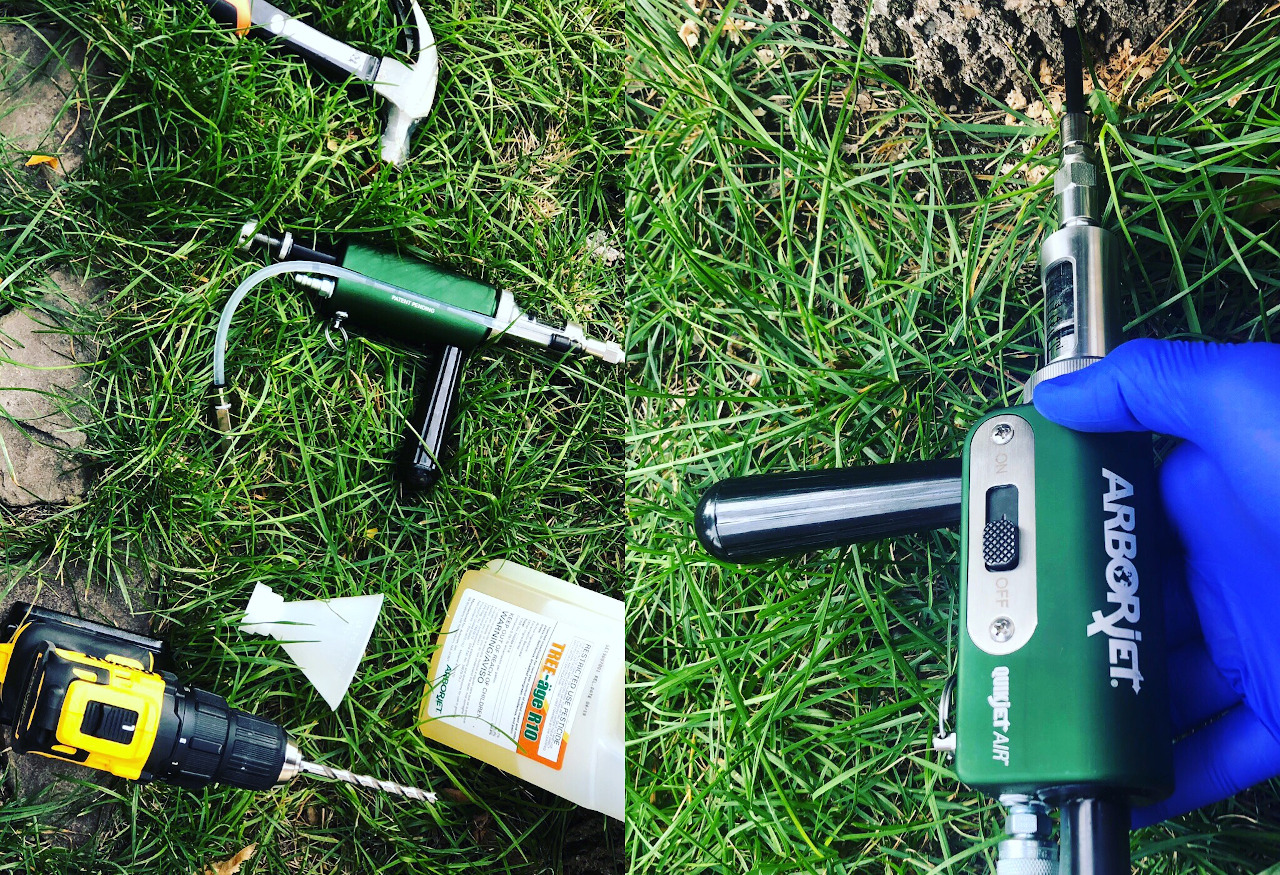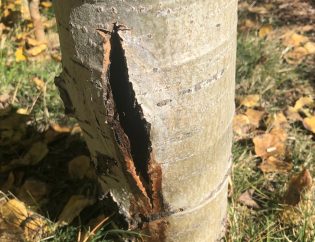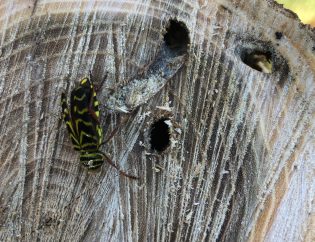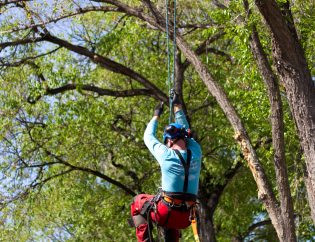
Most homeowners with landscaped yards enjoy the thought of an inviting outdoor space they can show off and enjoy. But creating a beautiful outdoor living space takes effort and patience.
“Attempting to force beauty onto trees and shrubs with bad pruning methods and overzealous spraying for pests is a haphazard approach that wastes time and money,” says Tchukki Andersen, BCMA, CTSP* and staff arborist for the Tree Care Industry Association (TCIA). “The result is usually only sickly plants to show for all that effort.”
“A plant health care (PHC) program can take the struggle out of your landscape work and give you back the time you envisioned having to enjoy the results,” she says.
What is plant health care?
Plants, and trees especially, are valuable assets for your landscape. As such, they require long-term, quality care in order to provide return on your investment. A PHC program accomplishes this by using specialized monitoring and problem-solving methods designed to prevent high-cost plant/tree replacement in the long run.
How does this work?
The goal of PHC is to maintain tree and plant health in your yard by providing proper growing conditions for the plants. Most health problems associated with trees can be linked to past environmental stress or declining growing conditions. Healthy trees have natural defenses, but when a tree is stressed, it is more vulnerable to harmful insects and diseases.
“PHC technicians work closely with homeowners to reduce those tree stressors and manage pest problems before they become harmful,” says Andersen. “Managing plant pests and problems rather than eliminating them offers a proactive and holistic approach to maintaining tree and shrub health.”
Who can do this for me?
An arborist qualified to provide plant health care will make proactive visits to your property to inspect for signs of any plant health problems. Considering your landscape goals, the PHC technician will help guide your plant-health regime. Your expectations and concerns about your trees are vital to the success of the PHC program.
What are the treatments?
Managed landscape plants sometimes require specialized “treatments,” as many living things often do. In the past, landscape pest control treatments were primarily pesticide or fertilizer applications made regularly, whether the plant needed it or not. PHC spray treatments are not necessarily obsolete or “bad” for the environment, if performed by a qualified technician for a specific pest. In fact, some spray treatments may be the best option for clients who have overriding concerns about program cost or are only concerned about one specific pest problem. Nowadays, though, good plant health care provides specific treatments at specific times, which better targets pests and reduces waste.
But the best treatment methods are those that work in combination with natural processes or are the least environmentally intrusive. A PHC technician may recommend any one or a combination of the following treatments:
- Maintenance or restoration pruning
- An integrated pest management (IPM) program to deal with any insect and disease issues
- Mulching bare soil beneath tree canopies
- Testing to determine any nutrient deficiencies/toxicities and a program to address them
- Evaluation and correction of current irrigation practices
- Planting pest-resistant varieties of trees and shrubs suited to your specific site
But can it help my trees?
Most people want to know what the pest problems or the overall problems are in their landscape. Your PHC provider observes your trees and shrubs for changes in their health and will work closely with you to devise solutions as needed. A custom-designed PHC program for your trees and shrubs will, over time, provide a beautiful and healthy landscape that the entire neighborhood can enjoy, and that will add value to your home.
Find a professional
Qualified PHC technicians save time and money for homeowners. The Tree Care Industry Association (TCIA) has many member companies with professional PHC providers who will tap into a huge reservoir of information and experience to make educated decisions and avoid costly mistakes.
*Board Certified Master Arborist, Certified Treecare Safety Professional


